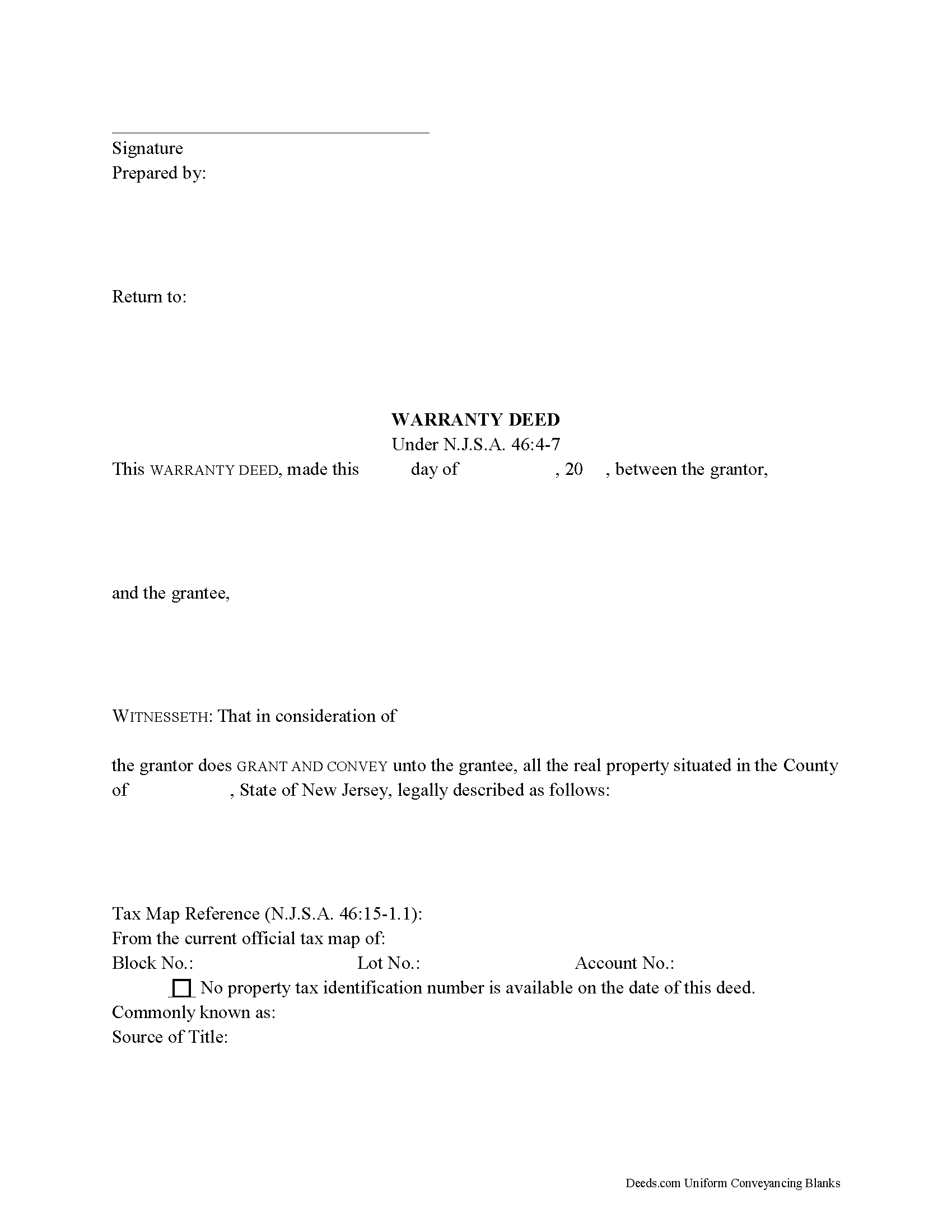Download New Jersey Warranty Deed Legal Forms

New Jersey Warranty Deed Overview

In New Jersey, real property can be transferred from one party to another by executing a warranty deed.
Warranty deeds contain the covenants of seizin, right to convey, quiet possession, freedom from encumbrances, and further assurances, in addition to the covenant of warranty (N.J.S.A. 46:4-3 through 4-5, 46:4-10). In New Jersey, when a deed includes a covenant that the grantor "will warrant generally the property hereby conveyed," it is implied that the grantor and "his heirs and personal representatives, will forever warrant and defend the said property... against the claims and demands of all persons" (N.J.S.A. 46:4-7). These covenants provide the grantee (buyer) a high level of protection against claims on the title.
A lawful warranty deed includes the grantor's full name, mailing address, and marital status, and the grantee's full name, mailing address, marital status, and vesting. Vesting describes how the grantee holds title to the property. Generally, real property is owned in either sole ownership or in co-ownership.
For New Jersey residential property, the primary methods for holding title are tenancy in common, joint tenancy, and tenancy by entirety. A conveyance to two or more unmarried persons is presumed to create a tenancy in common, unless otherwise stated. A conveyance to a married couple creates a tenancy by entirety, unless otherwise stated (N.J.S.A. 46:3-17, 46:3-17.3).
As with any conveyance of realty, a warranty deed requires a complete legal description of the parcel. Recite the prior deed reference to maintain a clear chain of title, and detail any restrictions associated with the property. The deed should meet all state and local standards of form and content for recorded documents.
Sign the deed in the presence of a notary public or other authorized official. For a valid transfer, record the deed at the recording office in the county where the property is located. Contact the same office to confirm accepted forms of payment.
Deeds transferring new construction as the term is defined in N.J.S.A. 46:15-5(1)(g) should contain the words "NEW CONSTRUCTION" in all caps on the first page (N.J.S.A. 46:15-6(2)(c)).
If the conveyance is exempt from transfer taxes, explain why on the face of the deed. See N.J.S.A. 46:15-10 for transfer tax exemptions. Include a completed Affidavit of Consideration for deeds claiming exemption or partial exemption.
Record a Gross Income Tax Form (GIT/REP) with the deed when transferring real property in New Jersey. Ask the local recording office or assessor for help choosing the appropriate version of the GIT/REP.
This article is provided for informational purposes only and is not a substitute for legal advice. Contact an attorney with questions about using warranty deeds, or for any other issues related to transfers of real property in New Jersey.
(New Jersey WD Package includes form, guidelines, and completed example)